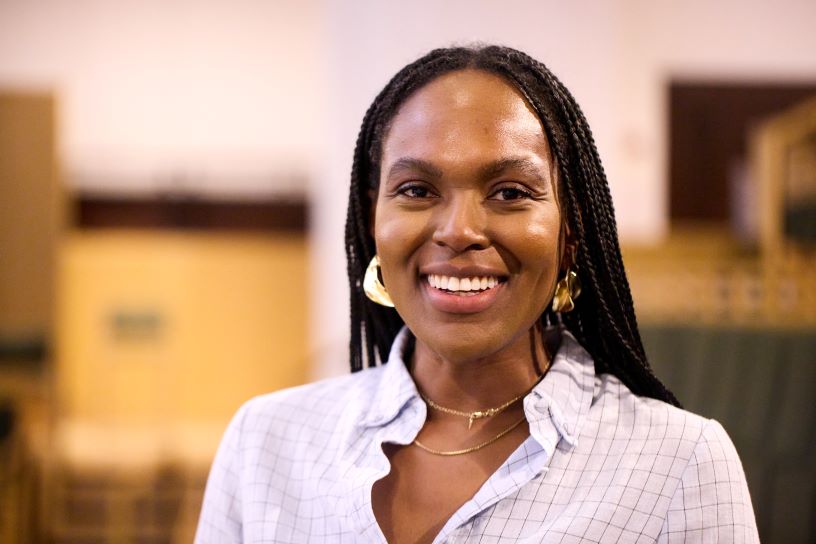Salter Lecture 2025: Abimbola Johnson calls for a pause in policing
At this year's Salter Lecture, barrister and racial justice advocate Abimbola Johnson invited her audience to reimagine policing through a Quaker lens of reflection, restraint, and accountability.

Speaking at Friends House in London last month, Johnson honoured the legacy of Ada and Alfred Salter, Quaker socialists who championed public health and social justice.
Johnson drew on her experiences as chair of the Independent Scrutiny and Oversight Board (ISOB), which scrutinises the National Police Chiefs' Council and College of Policing's Race Action Plan.
[QUOTE-START]
The most radical form of safety is stability - not more police on the streets, but fewer reasons to need them
- Abimbola Johnson
[QUOTE-END]
Citing findings from ISOB, Johnson described a police service often driven by crisis, lacking coherence, and failing to build meaningful relationships with the communities it serves.
“We found an institution acting before thinking," she said. “Power without measurable accountability."
Johnson challenged fears around the term “defunding," reframing it as reallocating power. “The most radical form of safety is stability - not more police on the streets, but fewer reasons to need them."
She called for investment in mental health services, housing, and youth support, echoing the Quaker Socialist tradition of mutual aid and public good.
Referencing recent police actions against peaceful protestors, including the Metropolitan Police raid on Westminster Quaker Meeting House, Johnson questioned how a system built on control responds to one built on silence and reflection.
"We often ask, 'What should the police do?'" she said. "But rarely do we ask, 'Should the police be doing this at all?'"
Johnson, who came to Quakerism after becoming disheartened with her childhood faith, described “pausing" as a radical act - not of inaction, but of intention.
"A paused institution listens before it acts," she explained. “It is slow to violence and quick to accountability."
In closing, Johnson asked what policing based on Quaker values might look like, with police officers centring listening, and trained in empathy as well as law.
“We pause not because we are unsure," she said, “but because we are serious."